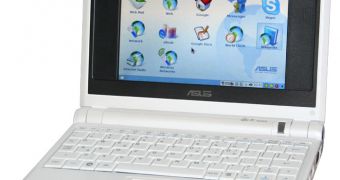There is no longer any question that 2009 was a key year for the netbook market. In the wake of the economic recession, the market for these low-cost laptops kept growing because of their long battery life, broadband connectivity and low prices. The netbook vendors' total shipments for 2009 amounted to 30.2 million units worldwide, which shows a 79% annual global volume growth. This was enabled by the good marketing performance of devices from Acer, ASUS, HP and Dell.
“According to our Netbook Share Tracker (NST) service, top vendors in 2009 were Acer, Asus, HP, and Dell. These players and other incumbents all ramped up the number of netbook models offered throughout the year, while newcomers like Nokia also entered this red-hot market. The launch of Microsoft Windows 7 also helped vendors reinvigorate their portfolios,” Alex Spektor, analyst at Strategy Analytics, said.
Predictably, analysts foresee that the market share of netbooks will continue to grow during 2010 and the following years. During 2009, North America and Western Europe were the key markets and the shipments of netbooks are set to be propelled even higher thanks to their good acceptance in retail stores. Strategy Analytics also believes that next-generation technologies, with better performance at a lower power and with a reduced size, will be a major factor.
“Netbook shipments benefited from a broad distribution footprint, which ranged from traditional brick-and-mortar stores to online retailers and mobile operator shops. This category is poised for further growth in 2010, as chipset makers battle for dominance in the portable device segment. Intel, Qualcomm, Nvidia and others will continue to push new processors that promise to do more, while taking up less space and consuming less power,” Peter King, director at Strategy Analytics, added.
While not as ambitious, this forecast seems to partially agree with ARM's prediction that netbooks will eventually make up 90% of the total PC market. Of course, such a high share remains unlikely, but future growth is a generally accepted fact.

 14 DAY TRIAL //
14 DAY TRIAL //